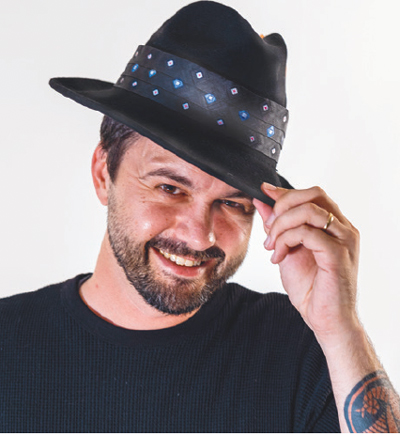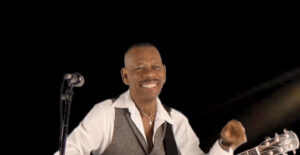There was violence everywhere.
Explosions. Gun fire, bombs, missiles. Carnage. It was more than a rebellion, it was a revolution. And as the hero focused on his task at hand, we the audience saw what he did not: TIE fighters, closing in. But just before his seemingly inevitable doom, there he was.
He came out of nowhere. Few people knew his name. With a few quick laser blasts, he dispatched the threat, and Luke Skywalker was able to fulfill his destiny and blow up the first Death Star. And then, in The Return of the Jedi, as Billy Dee Williams fought his way to the center of the second Death Star, there he was … again. If he hadn’t been there, who knows, the evil Empire may have won.
He never wanted to be in the spot light, was never in it for the fame. He was there to support his friends, his brothers. He understood that sometimes, to be a hero, you can’t be the hero.
That pilot’s name was Wedge Antilles.
***
Meanwhile, back on Earth, there was violence everywhere.
Explosions. Gun fire, bombs, missiles. Carnage. It was more than a rebellion, it was a revolution. And as the black man crossed the playing field, he knew we, the audience, would probably not understand. But the man decided to use his position to soapbox his concerns. To speak out. To stand up.
Afterwards, the man was vilified. They said, “Just play the game, we don’t care about your politics.” Then they called him a commie. They called him ungrateful. They threatened his life. But he was not alone. The other half of the world cheered him on. The other half of the world felt represented.
The man’s name was Tommie Smith. The year was 1968.
We’re lucky enough, now, to live in an age where the entire previous century was photographed. That’s a new thing. It’s awesome. Imagine how much more we can learn about ourselves – more than any generation before us. And of those images that we regularly revisit, there are some that have become truly iconic: John John at his father’s funeral, the moon landing or Rosa Park’s mug shot, or — the Black Power salute at the 1968 Olympics in Mexico City.
That moment, captured from several angles, tells the story of the 1960s. It’s the juxtaposition of humble beginnings and global dominance, of racial injustice and rebellion. It’s an image that shows us how far we’ve come, and reminds us how far we still need to go. Tommie Smith and his teammate John Carlos knew the repercussions for their raised fists would be severe. But they had a moment to speak to the world, so they seized it. And they will always be remembered for it.
But there were three men on that podium: Tommie Smith, John Carlos and … who’s that white guy?
His name was Peter Norman.
He was Australian. But to understand who he was, you have to know the story behind that famous photo, that moment.
First, a quick preface. The Olympic Project for Human Rights (OPHR) was an organization created in the late 60s. Some athletes and a few academics got together and decided to protest racial injustice in the world, in America and South Africa, and in sports. Smith and Carlos were members. So was the Harvard Rowing Team.
So, Peter had just won the silver medal for the 200 meter sprint. He was exhausted. He met with Smith and Carlos. And then, according to Australian journalist Martin Flanagan, “They asked Norman if he believed in human rights.”
He said he did.
They asked him if he believed in God.
Norman, who came from a Salvation Army background, said he believed strongly in God.
He said, “I’ll stand with you.”
Smith and Carlos had planned for this moment. It was all about sending a message. They were barefoot, to call attention to the plight of poverty. Smith wore a black scarf to show Black Pride and Carlos unzipped his collar to show solidarity with the working class. And they both had OPHR pins. They had also both planned to wear leather gloves, but in his haste, Carlos forgot his pair at the Olympic Village. It was Norman’s suggestion that Smith share a glove with Carlos. Smith agreed.
Peter Norman then happened across a United States rower named Paul Hoffman, who was also wearing an OPHR pin. Norman asked whether he could borrow it. Hoffman agreed.
The three men, each wearing an OPHR pin, took the field.
When the Star Spangled Banner played, Tommie Smith and John Carlos raised their fists.
And Peter Norman kept his word.
He never flinched, never winced. He stood his ground. Stoically. Courageously. He knew this was Smith and Carlos’ moment, and he let them have it. He never attempted to make the moment about himself or his struggles. His presence was his solidarity. And that borrowed pin on his lapel was his manifesto. His message was silent, simple and honest: I’ll stand with you.
They were booed off of the field. They were maligned in the press. They were kicked off of their teams.
The Americans came home. There were death threats, there was praise. They were hated, they were loved. They were put down, they were held up. Smith went on to play for the Bengals and later became a professor and coach. Carlos also went to the NFL, was almost an Eagle, but a knee injury diverted that dream and left him playing Canadian football. He later became a coach and counselor.
The Australian went home. There were death threats. He was hated. He was put down. According to a profile by James Montague, “He returned home to Australia a pariah, suffering unofficial sanction and ridicule as the Black Power salute’s forgotten man. He never ran in the Olympics again.”
Norman qualified for the 1972 Olympics, 13 times over, but was not selected for the team. To this day, he holds the Australian record for the 200 meter sprint. He kept competing. But he would never run for the Australian team again. The price Norman paid for standing up, for standing beside two of his competitors as they stood up for themselves and their communities, was lifelong.
Like Smith and Carlos, Norman went on to play football, Australian rules. Afterwards, he became a coach. In 1985, after an injury to his Achilles heel during a charity run, he nearly had to have his leg amputated due to gangrene.
In 2012, the Australian House of Representatives passed an official apology to Norman. After mentioning his athletic feats, the House sought to “acknowledge the bravery of Peter Norman in donning an Olympic Project for Human Rights badge on the podium, in solidarity with African American athletes Tommie Smith and John Carlos, who gave the ‘black power’ salute … and belatedly recognizes the powerful role that Peter Norman played in furthering racial equality.”
Unfortunately, it was a posthumous apology. Norman died in 2006.
Tommie Smith and John Carlos were pallbearers at Peter Norman’s funeral.
In his eulogy, John Carlos shared that when “he said, ‘I’ll stand with you’ … I expected to see fear in Norman’s eyes.
I didn’t.
I saw love.”
He came out of nowhere. Few people knew his name. He never wanted to be in the spotlight, was never in it for the fame. He was there to support his friends, his brothers. He understood that sometimes, to be a hero, you can’t be the hero.
That man’s name was Peter Norman, the Wedge Antilles of the 1968 Olympics.
























